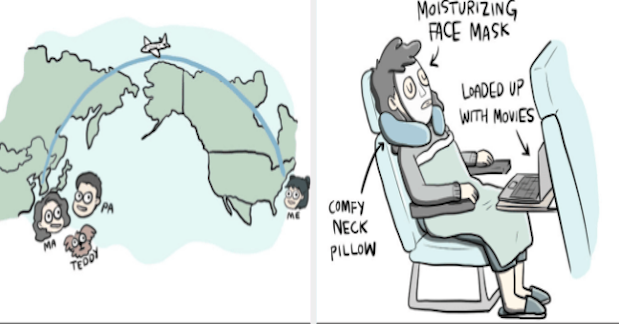from the rubbing-everyone-the-wrong-way dept
Grope. Grope. Grope grope grope. Grope. Andddddddd… some humiliating of people with rare medical conditions just because.
That’s just how the Transportation Security Administration (est. one-month-post-9/11 2001) operates. Americans are forced to subject themselves to groping, humiliation, unjustified questioning/searches, seizures of explosive breast milk, etc. just because the federal government thought the only way to respond to terrorists hating us for our freedom was to curb our freedom. (Good news though: you CAN BUY [some of ] IT BACK!)
The TSA is fortunate to be a federal agency. Otherwise, it would be on the verge of bankruptcy (in maybe the fiscal sense — it has long been bankrupt morally and ethically). The little (search) engine that couldn’t (find explosives or actual contraband) continues to limp along, granted yearly funding under the idiotic theory that we’d somehow be less safe if travelers weren’t constantly harassed by an agency that has prevented exactly zero (0) terrorist attacks in its two decades of existence.
Being federal means taking advantage of an additional set of loopholes when being sued. Regular cops only have qualified immunity. Federal cops (by which I mean any federal law enforcement officers) have the baked-in protections afforded by (and extensively expanded by federal courts) the Federal Tort Claims Act (FTCA).
This act prevents all sorts of lawsuits. Those it allows are often tossed because the Supreme Court has said, repeatedly, lower courts aren’t supposed to allow suits to proceed unless they follow the bare minimum of precedent the Supreme Court has managed to create over the past few decades, which is pretty much nothing at all.
So, while you can sue federal officers for, say, firing bullets across the border to kill your child, you’re probably better off spending that money on things you need, rather than things no federal court will allow you to have… you know, like redress for your grievances.
Every so often, though, the federal government assumes too much. And that’s when federal courts step in. The precedent may remain extremely limited, but we’re always happy to see any court decision that limits the government’s power and returns a bit of it to the people who ensure it can cash its paychecks.
This decision [PDF] dealing with the TSA and its hilarious attempts to avoid this lawsuit comes to us courtesy of the Institute for Justice’s appeals court roundup, Short Circuit.
This case involves someone who was basically sexually assaulted at a TSA checkpoint. The Fourth Circuit Appeals Court says the case can proceed, citing precedent set in other districts:
May people who claim they were assaulted by Transportation Security Administration screeners sue the federal government under the Federal Tort Claims Act (FTCA)? Joining the Third and Eighth Circuits, we hold the answer is yes.
Erin Osmon went through a checkpoint at a North Carolina airport. The TSA screener claimed the body scanner had “alarmed on her” and told her she would need to “submit” to a physical body search. During this search, the TSA agent “forced” her to spread her legs and “fondled her genitals twice.” After this unscheduled groping, she was apparently free to go.
Osmon sued. The magistrate judge at the lower level recommended dismissal due to a lack of jurisdiction, citing the FTCA’s extensive extension of sovereign immunity. The district court agreed with this initial review and tossed Osmon’s case. Osmon appealed.
The Appeals Court says both layers of the lower court are wrong. The allegations made here are sufficient to sustain a lawsuit against federal law enforcement officers, no matter what limitations are baked into the Federal Tort Claims Act.
Furthermore (as noted above), other federal circuits have found in favor of plaintiffs in similar situations, which means there’s (at the very least) an open question of law as to whether TSA agents can claim sovereign immunity by pretending they’re not federal law enforcement officers.
That’s the pretense that was raised by the TSA, which claimed its efforts to enforce travel security laws did not make its employees officers of the law. But the government cannot reasonably claim these agents are not in the law enforcement business, especially in light of the statutory text of the FTCA.
This appeal thus comes down to a single controlling question: Are TSA screeners “empowered by law to execute searches, to seize evidence, or to make arrests for violations of Federal law”? 28 U.S.C. § 2680(h). If yes, Osmon’s suit may proceed. If no, it may not.
We conclude the answer is yes. Because the law enforcement proviso “speaks in the disjunctive,” TSA screeners need be empowered only to do one of the three listed things— that is, execute searches, seize evidence, or make arrests.
True, TSA agents often expect other law enforcement agencies to effect arrests, but the entirety of TSA agents’ jobs is to execute searches and, if need be, seize evidence. That’s two-thirds of the definition and that’s more than enough to make TSA agents subject to the Federal Tort Claims Act.
The court says the government is wrong:
The government disagrees, insisting the relevant language covers only searches that are part of “criminal law enforcement.” Per the government, the law enforcement proviso permits suits for battery only when the officer could perform “a criminal, investigatory search” rather than “an administrative search,” which takes the form of an “inspection” or “screening.”
The problem with the government’s argument is that it reprises a tactic the Supreme Court has already rejected: “read[ing] into the text additional limitations designed to narrow the scope of the law enforcement proviso.” The word “criminal” appears nowhere in the law enforcement proviso—let alone as a modifier of “searches.” Here, as elsewhere, we “may not narrow a provision’s reach by inserting words Congress chose to omit.”
Actually, it’s wrong twice:
Undeterred, the government asserts the limits it seeks are implicit in the overall provision. Invoking the principle that “words grouped in a list should be given related meanings,” the government says the law enforcement proviso’s references to “seiz[ing] evidence, or . . . mak[ing] arrests for violations of Federal law clearly refer to police powers in criminal investigations.” And so, it continues, the statutory words “execute searches” also must be so limited.
We are unpersuaded. True, the words “make arrests” are limited to the criminal context, and “seiz[ing] evidence” is often—and likely most often—used in that context. But government officials investigate plenty of violations of law that are civil, not criminal, in nature, and there is nothing linguistically strange about using the words “seize evidence” in that context. The government’s premise, in short, does not hold.
The TSA is composed of officers in uniforms with weapons, badges, powers, and plenty of officiousness. They enforce laws by seizing contraband (I mean, theoretically) and performing searches of passengers and their belongings. They are undeniably federal law enforcement officers. And no deliberate and convenient misreading of this statute changes these undeniable facts. The lawsuit against the TSA may not ultimately prevail. But the government can’t pretend its law enforcement officers aren’t actually law enforcement officers to obtain an early out.
The best news for victims of TSA violations is this: the Fourth has thrown its FTCA hat in with the Third and Eighth Circuits. This creates the sort of issue the Supreme Court might be forced to address. Even if the Supreme Court decides to do the thing it does and refuse to act as a check against government power, the application of the Federal Tort Claims Act to TSA agents in three circuits increases the possibility that violated citizens located everywhere in the nation will at least see their complaints survive a cursory motion to dismiss.
Filed Under: 4th circuit, civil liberties, erin osmon, federal tort claims act, ftca, groping, law enforcement, molesting, pat down, qualified immunity, sovereign immunity, tsa
Source link










Leave a Reply